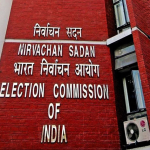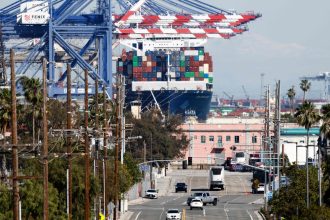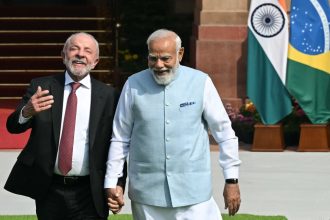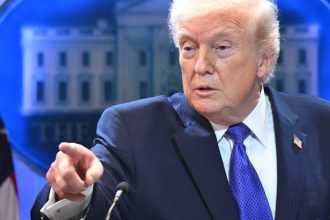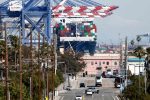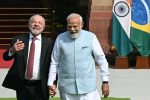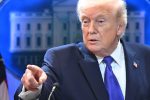NEW YORK, Sept 24 — In a striking development on the sidelines of the United Nations summit, former US President Donald Trump made a bold and controversial statement — urging NATO nations to shoot down Russian aircraft that violate allied airspace.
When asked directly by a reporter whether NATO countries should take such action, Trump replied firmly, “Yes, I do.”
This assertive stance follows a worrying increase in Russian military provocations, including repeated incursions by fighter jets and drones into NATO territory. These episodes have deeply unsettled European nations and rekindled fears of a wider conflict stretching beyond Ukraine.
While Trump refrained from providing a clear answer about Russian President Vladimir Putin’s intentions for peace, he offered a cryptic response:
“I’ll let you know in about a month from now, okay?”
This noncommittal answer adds to a long list of delays in deciding on stronger US actions, including potential sanctions.
The former president, now 79, has often made similar statements in the past, giving vague two-week deadlines to take decisive steps — deadlines that have often passed without action.
Despite his previously tense relationship with Ukrainian President Volodymyr Zelensky, including a televised clash at the White House earlier this year, Trump took a softer tone during this meeting.
“I have great respect for the fight that Ukraine is putting up. It’s pretty amazing actually,” Trump said.
Zelensky responded with gratitude, acknowledging Trump’s “personal efforts to stop this war” and reiterating the need for European countries to cut off their dependency on Russian oil — a point Trump has long emphasized.
These remarks come amid escalating tensions in Eastern Europe. On Friday, three Russian MiG-31 fighter jets violated Estonian airspace for approximately 12 minutes. Estonia reacted swiftly, scrambling jets and calling for a UN Security Council emergency session, while seeking urgent consultations with NATO.
In neighboring Poland, repeated airspace violations by Russian drones have raised alarms, especially during recent attacks on Ukraine. Polish officials called these acts “aggressions,” pushing for a stronger and more unified NATO response.
Trump, who initially downplayed the Polish incident as possibly accidental, seems to have hardened his position — signaling a shift that could ripple across the alliance.


